Agrarian Trust and Partner Organizations Receive USDA Grant Funding
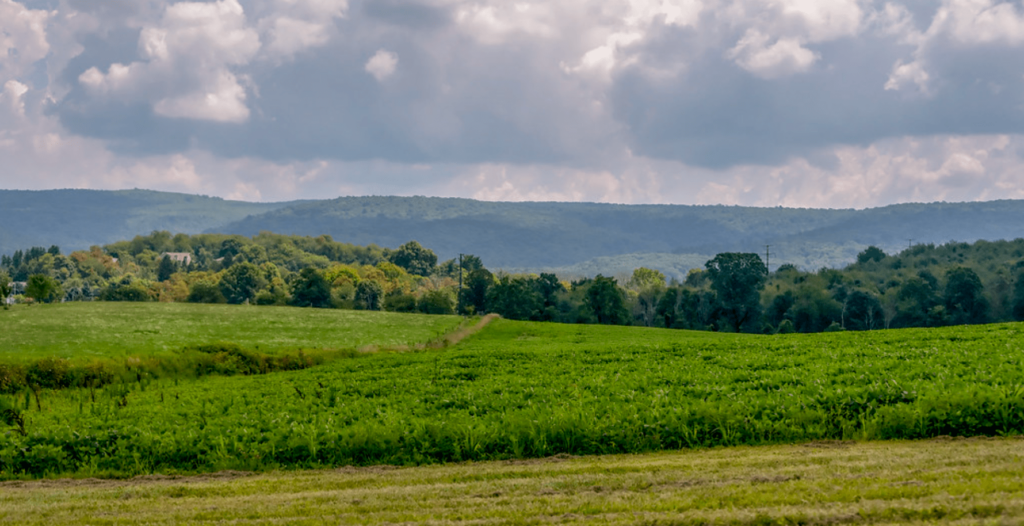
Twelve organizations, including Rural Action on behalf of the Central Appalachian Network, Agrarian Trust, and New Roots Community Farm, have been selected to establish USDA Regional Food Business Centers that will provide coordination, technical assistance, and capacity building to help farmers, ranchers, and other food businesses.
Agrarian Commons Farmers go to DC
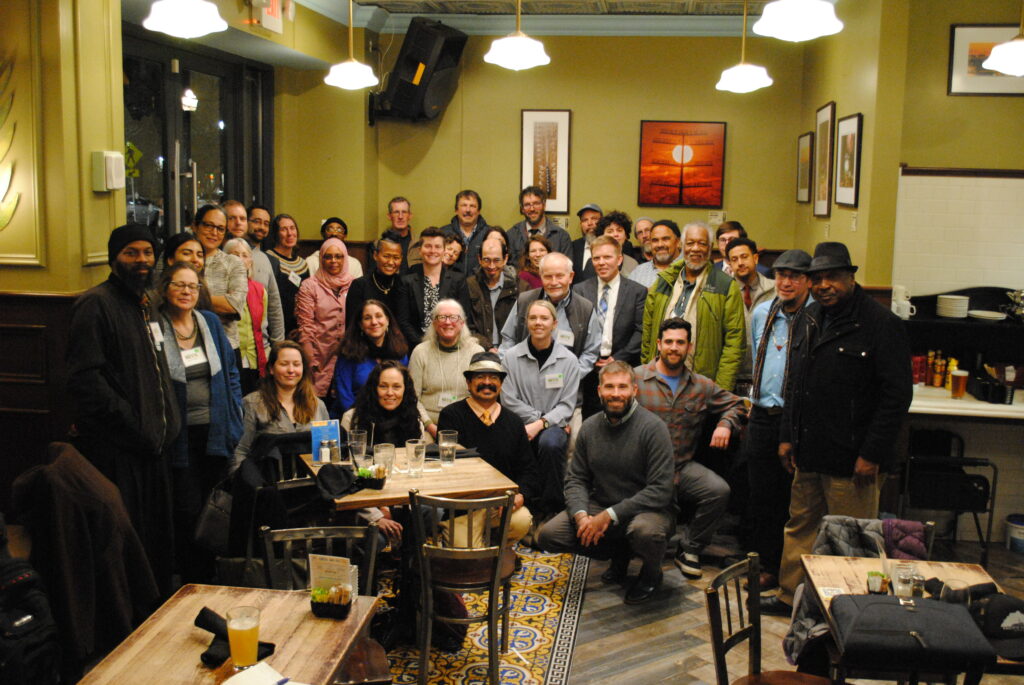
Agrarian Commons farmers Cam Terry, Duron Chavis, and Tyrone Cherry III joined the National Family Farm Coalition’s (NFFC) first national fly-in in three years. A progressive policy organization committed to fighting corporate control of agriculture, NFFC gathered farmers, fisherfolk, and nonprofit leaders to lobby their congressional representatives. Our shared objective was to create a more equitable farm system for all.
Introducing Commons Groundswell, the Agrarian Trust Podcast

Over the course of the podcast’s eight episode first season, Commons Groundswell will cover a wide range of themes, from decommodifying the land through the Agrarian Commons to rebuilding land ownership for Black farmers, and the importance of rekindling spiritual connection with the land. Listen to leading voices in the fight for equitable land access, like Dr. Shakara Tyler of Detroit Black Farmer Land Fund, and Leah Penniman of Soul Fire farm as they share their perspectives, and expand and explore what it means to live on the land.
The Bhoodan Movement and Land Gifts as Revolutionary Practice
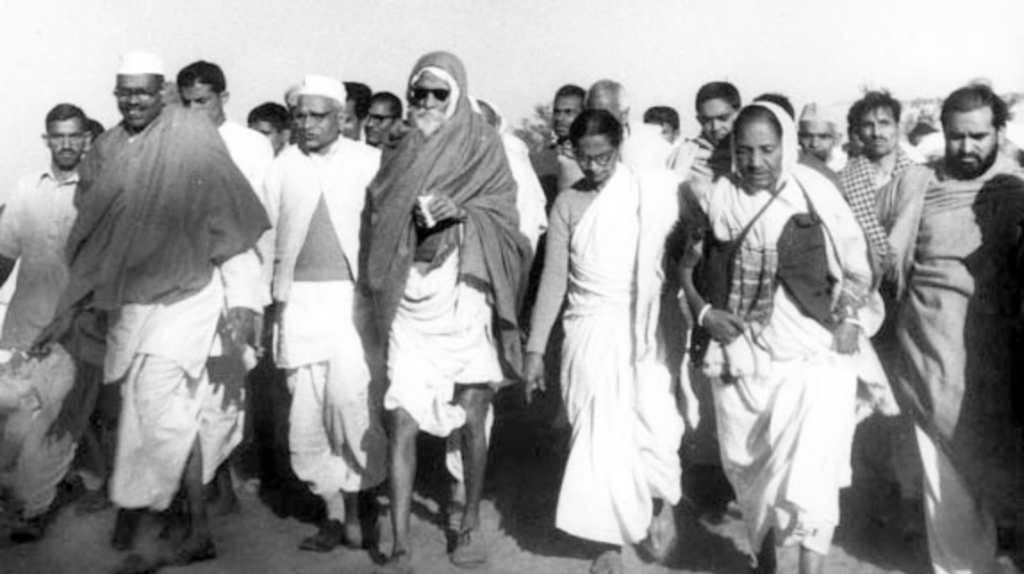
The Bhoodan movement serves as an example of the limitations of land-gifting, as well as its immense potential. On the one hand, land donations should be considered as one part of what should be a multifaceted approach, and cannot fully replace a concerted effort to influence policy and decentralize land holdings and power dynamics. On the other hand, the role of land donors should not be underestimated. Bhave and the Bhoodan movement showed that landowners are willing to make serious sacrifices in the name of a deeply moral cause.
New Roots Builds Connections Between Local Farms and Schools
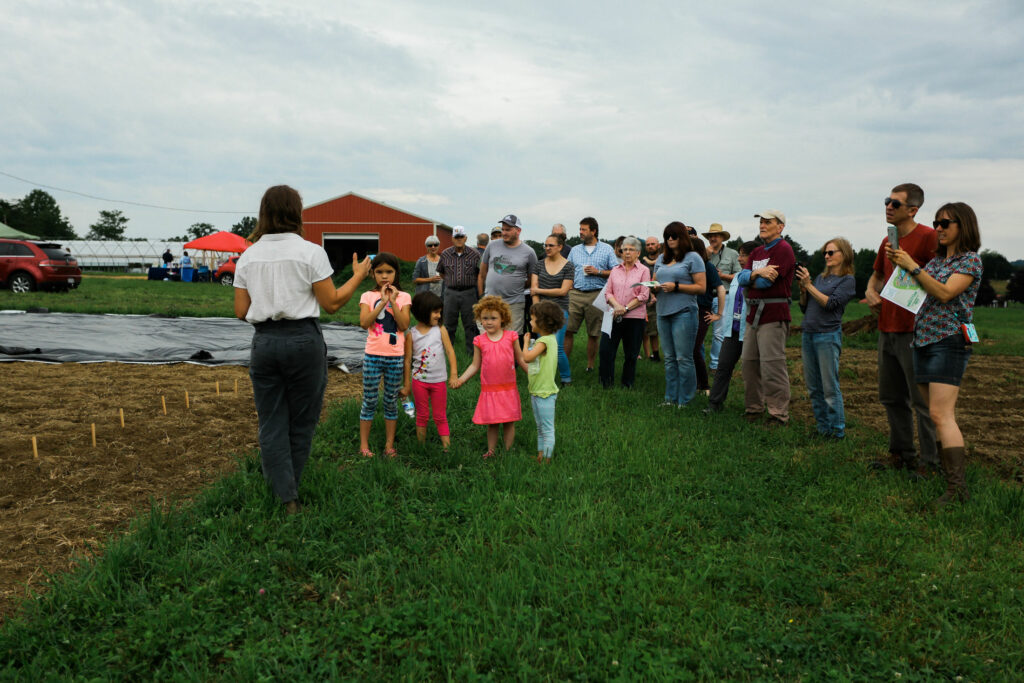
For the past year and a half, every Wednesday has been West Virginia Wednesday. On these days, the ingredients for students’ meals, including the frozen chickens, are sourced directly from local farms, providing a major source of income for farmers and access to healthy, locally grown food to students. This dual benefit is a key feature of Farm to School programming in Fayette County.
Give the Gift of the Commons
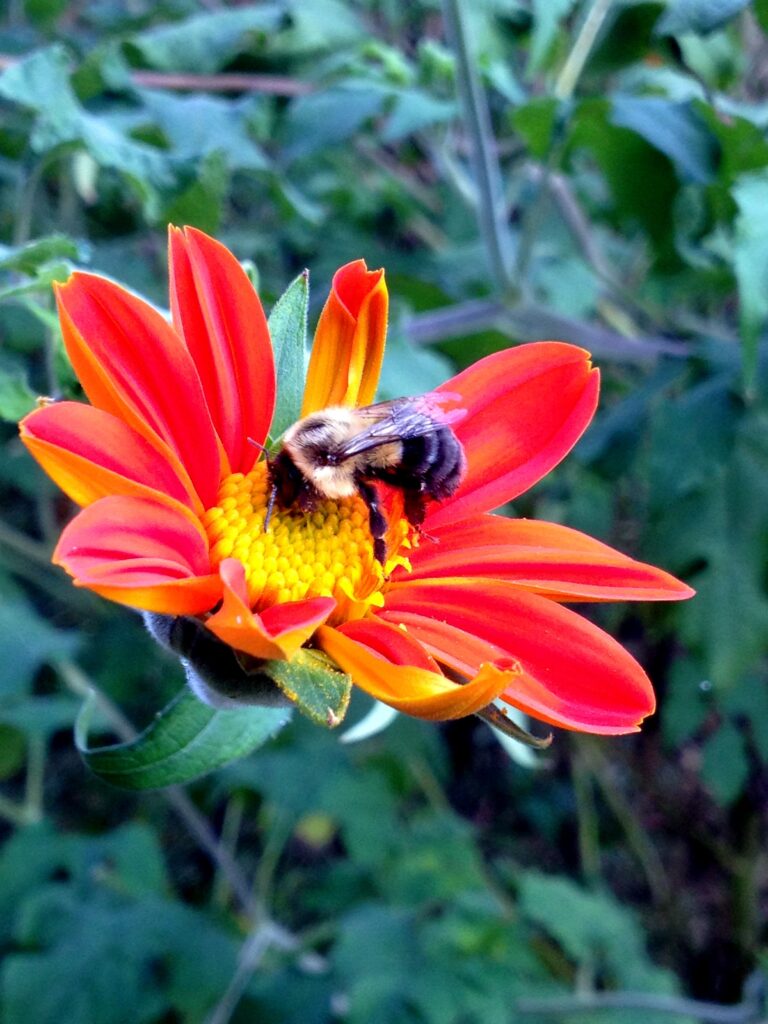
As 2022 draws to a close, we want to take a moment from the bustle of the season to reflect on some of these successes, and to share the work that still needs to be done.
We ask that you consider the variety of giving options Agrarian Trust provides, including our Alternate Gift Catalog, the Caring for the Commons Fund, and the ongoing fundraisers in Maine, Southwest Virginia, and Central Virginia. With your help, we can chart a new path for land ownership in the United States.
The Global Roots of Community Land Ownership
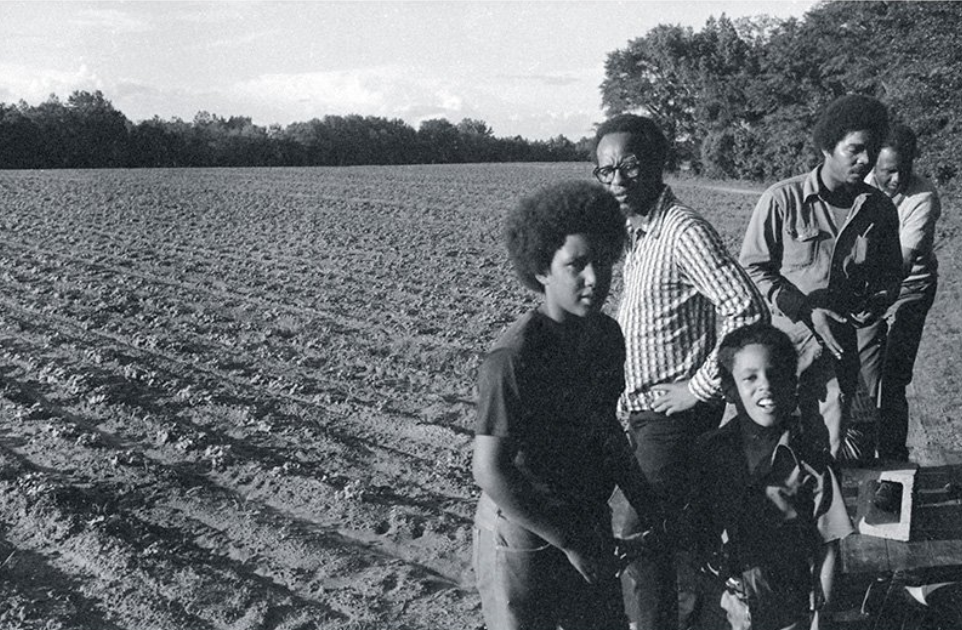
A CLT, according to Center for Community Land Trust Innovation, “is a nonprofit corporation that holds land on behalf of a place-based community, while serving as the long-term steward for affordable housing, community gardens, civic buildings, commercial spaces and other community assets on behalf of a community.” Like the Agrarian Commons, CLTs are based on the premise that land should be held and managed for the benefit of local communities.
Agrarian Trust Co-sponsored the 2022 Food Week of Action

Last week, food justice organizations around the country observed the Food Week of Action, an initiative led by Presbytarian Hunger Program. This year’s Week of Action had the theme People and Planet First, and centered the work of farmers, fishers, and other agriculturalists as they fight to build food sovereignty across the globe. As part of the Week of Action, participating organizations hosted events, actions, and worship services supporting this critical effort.
The Legacy of Land
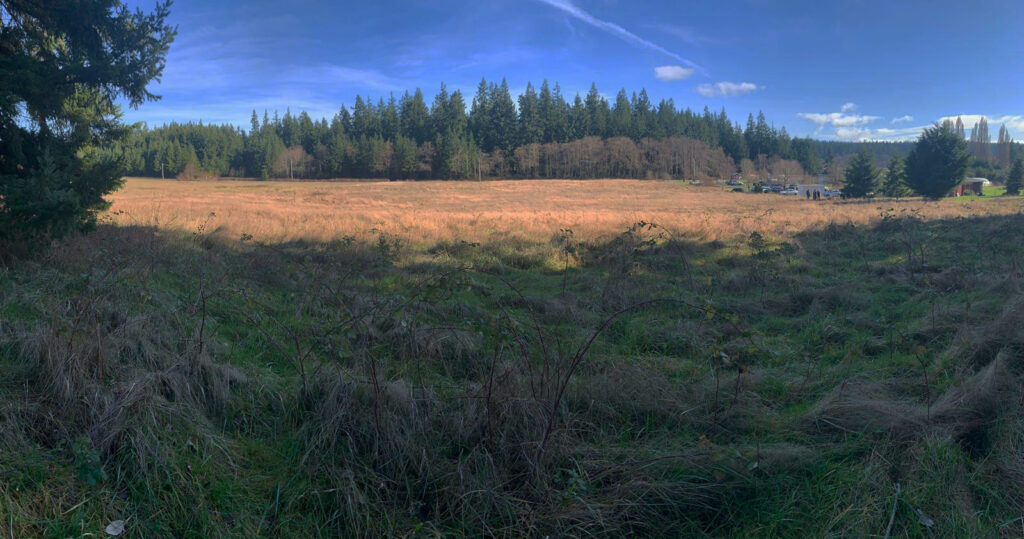
While these are the most common options donors use to transfer land into an Agrarian Commons, every donor is different. Agrarian Trust will work closely with prospective donors to ensure that they are able to make the gift in a way that best suits their needs, while continuing to support the Agrarian Commons. For example, donors can choose to donate only part of their land, or to spread their donation out over a couple of years in order to receive the optimal tax benefits. Nonprofits and land trusts are also welcome to donate land to Agrarian Trust.
Envisioning the Future of Black Seed Agroecological Farm and Village
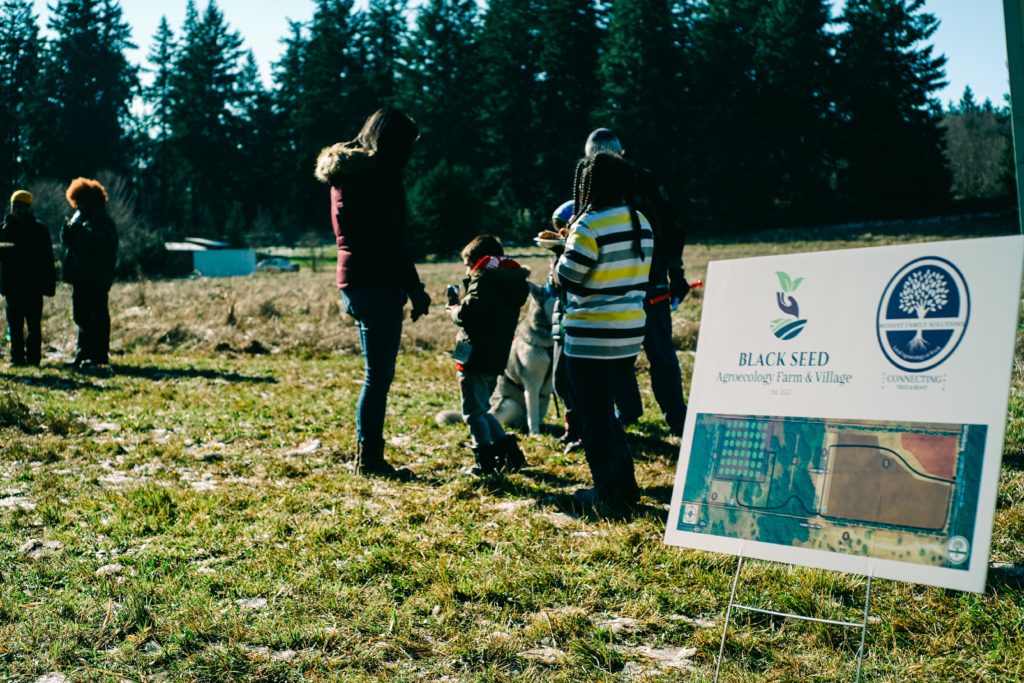
Black Seed Agroecological Village and Farm is still in the beginning stages of development. As is the case with most new farming operations, there’s a lot of work that needs to be done before the farm can begin operating at full capacity. New fields need to be cultivated, perennials planted, and new buildings constructed. Turner is currently working with the Washington State Department of Agriculture to define water rights on the farm, and to identify the source of surface water that covers part of the land.